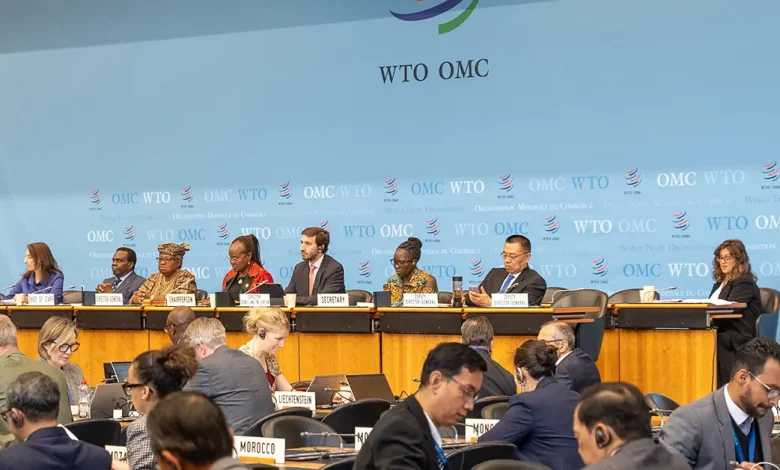Daily Current Affairs for UPSC
WTO not a place for addressing labour or environmental concerns
Syllabus: Environment [GS Paper-3]

Context: Developed countries are accused of utilising the concept of sustainability as a means to tackle their trade imbalances with developing nations.
Key Points:
- Excessive concerns have been raised by the experts considering international trade about developed countries using environmental measures as a means to build barriers against exports of developing nations.
- They claim these sets of measures, which are presented as sustainability programs, to be just a hide behind these initiatives so the trade deficit between developed and developing countries is minimised.
- The same set of experts also maintains that the developed countries are trying to change WTO order in their favour.
EU’s decision:
- The EU will implement a carbon tax on industries such as steel, cement, fertiliser, aluminium, and hydrocarbon products starting in 2026.
- India’s exports of iron, steel, and aluminium products to the EU accounted for 27% and valued at $8.2 billion in 2022.
- Additionally, a think-tank called Global Trade Research Initiative (GTRI) predicts that India’s exports of coffee, leather hides, and paperboard worth $1.3 billion per year to the EU will be affected by the EU’s deforestation regulation implemented last year.
India has expressed some concerns:
- India is against the inclusion of non-trade issues, such as environment protection, gender empowerment and MSMEs in agenda for WTO Ministerial Conference.
- On the contrary, India points to even forums outside of WTO that solely are dedicated to discussion on these problems – within UN framework they can be discussed in specialised forum.
- India has raised objections to the environmental measures being used as protectionist non-tariff barriers with specific examples like carbon tax and deforestation law of EU.
- Moreover, India objects to the presence of external stakeholders like civil society organisations ito policy-making debates at WTO.
- This opposition from India is noteworthy as trade ministers from 164 countries prepare to gather in Abu Dhabi to address various topics, including agriculture, fisheries, and the relationship between trade and sustainable development.
- During a recent meeting at the World Trade Organization (WTO) in Geneva, India expressed its concerns regarding the European Union’s (EU) carbon tax and deforestation regulation.
- Joining India in raising these apprehensions were countries such as Russia and Brazil.
- All three nations argued that the implementation of these measures by the EU could potentially have adverse effects on their respective industries.
- This unified stance against the EU’s carbon tax and deforestation regulation highlights the growing opposition to these policies, with multiple countries now voicing their dissent at an international platform.
Conclusion:
- India and other similar nations at the WTO are dedicated to promoting fair trade practices and distinguishing between trade-related issues and non-trade matters.
- By establishing clear boundaries, they aim to prioritise sustainable development while also maintaining strong international trade relations.
Source: Indian Express





.png)



